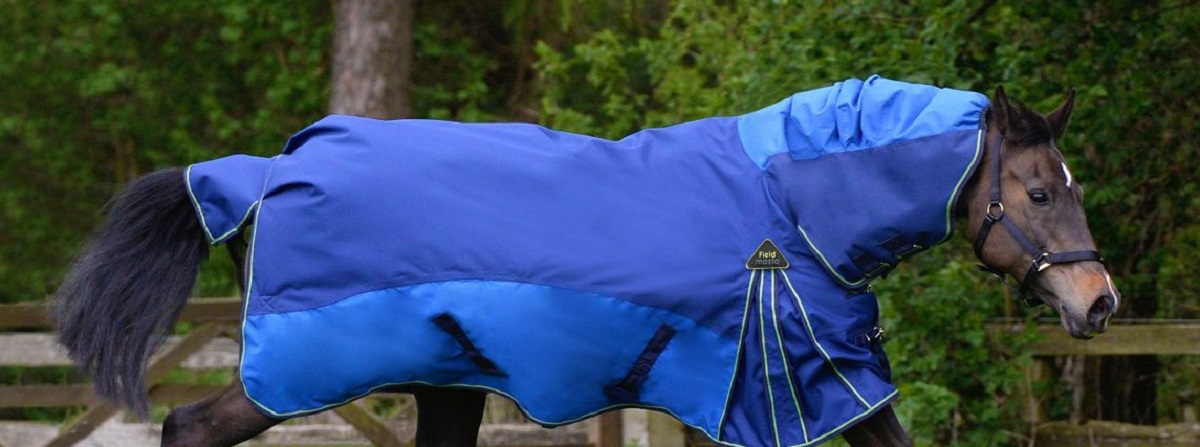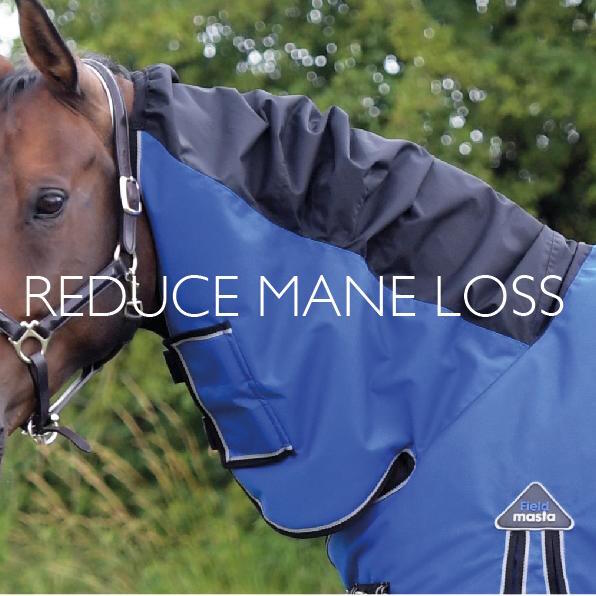
Mane loss can be an annoying result of winter for a lot of horse owners. The need for a neck cover to keep your horse warm and clean often takes priority over a full flowing mane but then come Spring and the show season, you’re left with nothing to plait and resort to hogging or plaiting half a mane – but hey it takes half the time so there’s a small silver lining!
Harry Hall is the home of the well-known horse rug brand Masta. With over 50 years experience in designing and developing rugs for your horse we’re always looking for ways to improve our rugs.
We identified that mane loss in horses was a real issue for a lot of owners, so we set out to create a rug that helped prevent mane loss and were excited for the challenge ahead.
Why do horses lose their mane?
- Rubbing
- Over-rugging and badly fitting neck cover
- Poor health of the hair follicles - when the hair is starved with oxygen the hair follicles can fall out.
The Fieldmasta horse turnout rug came about from a need to create a rug that solved these issues as well as a feeling that neck covers are not fit for purpose on a lot of rugs.
Turnout rugs - back to the drawing board:
So where do we begin in re-designing a fixed neck turnout rug? When you look at most neck covers they are not fit for purpose – they’re static, rigid and designed for horses to stand still like a statue rather than put their head down and graze. Horses spend approximately 70% of their turnout time grazing (some more, some less!) so neck covers should fit close to the neck and move with the body rather than being restrictive – there is nothing worse than a rug that has a wind tunnel type neck cover when your horse puts its head down to graze.

After a lot of research, sketches and prototypes we came up with the idea of creating an articulated neck cover that moves with the horse. Our main source of inspiration was articulated sleeves found on many outdoor activity jackets. The unique dome neck is designed with a series of darts that help to create a greater surface area of material over the top of the horse’s neck, this creates extra volume and enables the fabric to stand off the horse’s mane, allowing air to circulate over the hair follicles.
Fieldmasta - the testing stages:
It took over a year of testing to get the final design. Turnout rugs need to be pretty tough when you think about it. Rugs are expected to withstand whatever your horse throws at them on a day to day basis. Keeping them warm and dry as well as staying put when half tonne animal rolls in the mud. We tested the prototypes on a variety of different types of horses from Arabs to Irish Drafts to ensure we had a design suitable for all shapes and sizes. The Fieldmasta prototypes were well and truly put through their paces here on the exposed hills of Yorkshire in wind, rain (it always seems to be raining!) and mud.
Top tops to prevent rugs from rubbing and mane loss:
It is vital to ensure that your horse’s rug is the correct size and fitted properly – this will help to eliminate potential rub points. Be sure to check rugs throughout the change in seasons as changes in body condition through workload and weight can affect rug size, you may need to alter straps or even change rug sizes.
Between the seasons, when your horse’s coat is changing, can be a prime time for rubs to appear, as winter hair is softer and more fragile than summer coat hair, along with rugs being worn for longer periods of time. Keeping your rugs clean and the lining free of grease and dirt build up is a must as this can contribute to rubbing and pulling of hair. Find a local rug wash company and at the end of each season remember to drop them off for a good wash!
Whatever style of rug you decide is best for your horse, make sure you allow your horse to have time to let his skin and coat breath between changing rugs. This is vital to maintain a happy healthy horse as well as preventing rubs.
Browse the full range of Fieldmasta rugs here, from lightweight to heavyweight turnout rugs there is a rug for every season.
